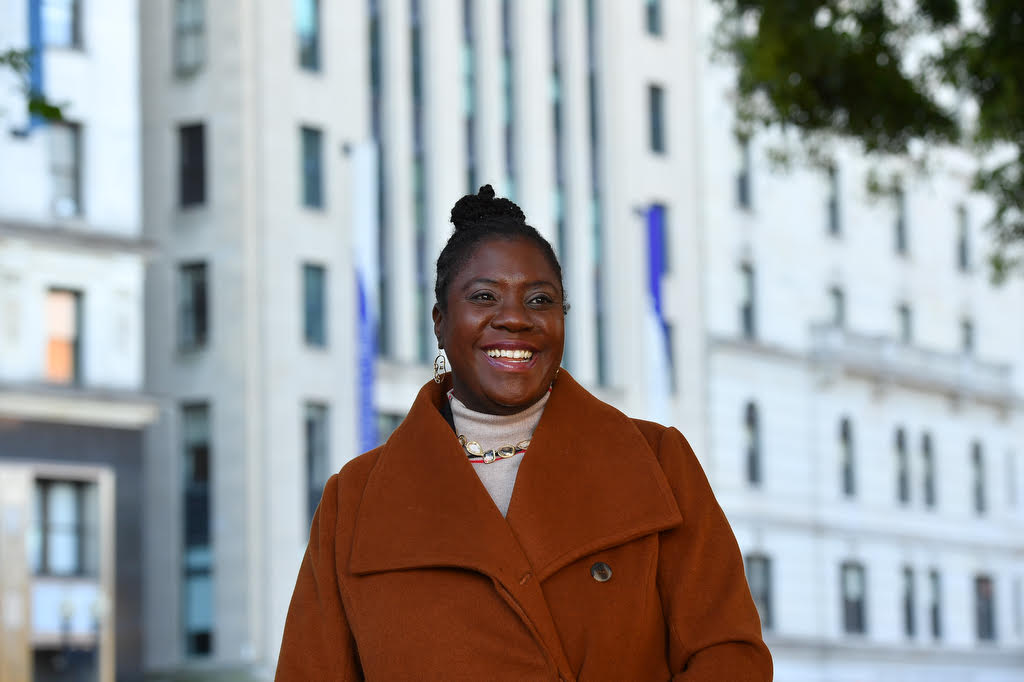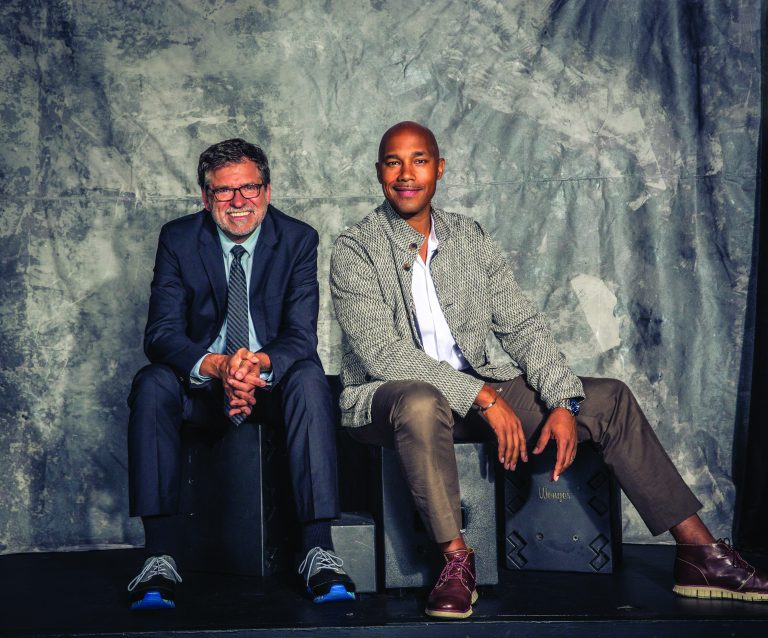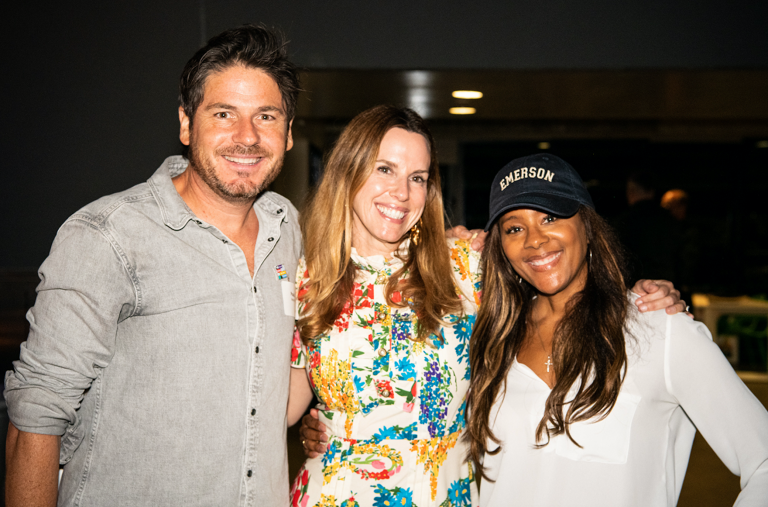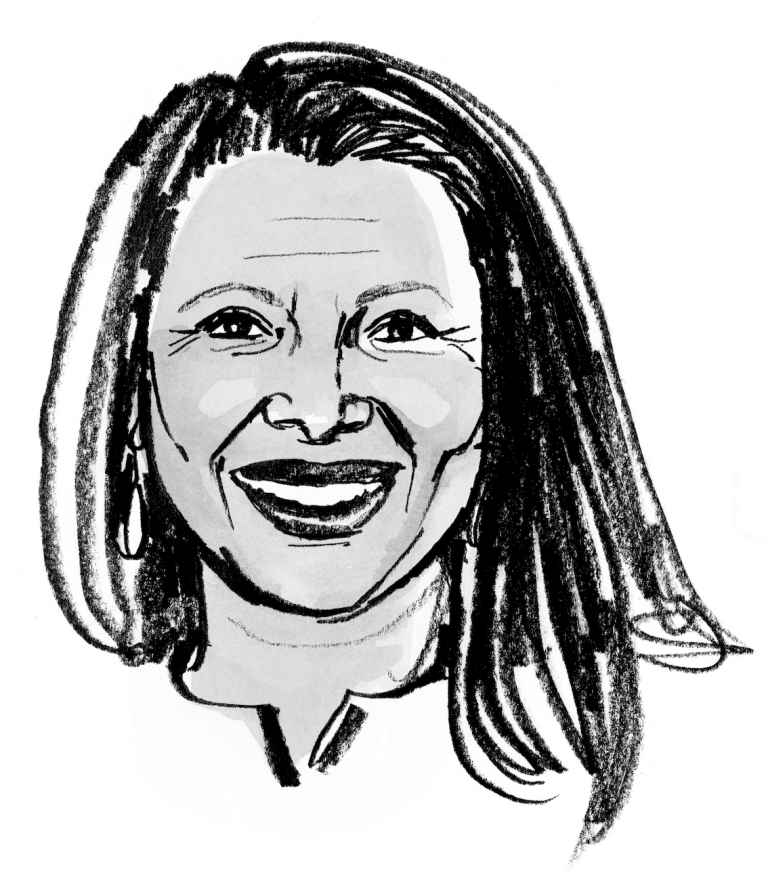10 Things to Know About Shaya Gregory Poku
Shaya Gregory Poku (she/her) is Emerson’s new vice president for equity and social justice, overseeing the intersectional work of the Social Justice Collaborative, Elma Lewis Center, and Healing & Advocacy Collective as they continue to collaborate, advocate, and support stakeholders across the College. Here are 10 things to know about her.
1: Her name is pronounced SHAY-a POE-koo
2: She’s a self-described history geek—take her to a museum or a national park any day.
3: She’s from the San Francisco Bay area—specifically Oakland and Richmond. (“It’s very formative to who I am,” she said.) She identifies as African American and is in an intra-diasporic marriage, as her husband is from Ghana. “I think sometimes we think of Black as a homogenous identity, but certainly there’s lots of variation within that. I have both the experiences in my family of new Black immigrants who experienced colonization as well as people who experienced transatlantic enslavement.”
4: Prior to Emerson, Poku was the associate vice president for institutional equity and belonging at Wheaton College in Norton, MA. She spent nearly a decade in the nonprofit sector before pivoting to higher education.
5: Poku loves figuring out how institutions can better serve students, which includes “helping to create the structures that are going to outlast people…the kind of policies, the kind of norms, the kind of cultural practices that reduce barriers for students to be successful.”
6: She holds advanced degrees in Intercultural Relations with a concentration in Intercultural Conflict Management from Lesley University, and in Security and Resilience Studies from Northeastern University. She also is a certified mediator through the Program on Negotiation at Harvard Law School.
7: She attended Agnes Scott College, a women’s college in Decatur, GA, and currently serves on its alumnae association’s board of directors. During college, she was one of only a few Black students to study abroad. (She went to India and South Africa.) She wanted to make sure more Black students knew about and took advantage of the opportunity, so she worked with the school to create a study abroad panel focused on the Black experience, leading to more students of color going abroad.
8: Her professional experiences and interests have centered on empowering people and communities to make change. “So much of the work that I’ve tried to do is about enabling people and communities to live dignified lives. That’s deeply important to me,” she said.
9: In her office at Emerson, she has some books that used to belong to one of her favorite professors at Lesley University. “He was a person who really gave me my intellectual voice and who helped me realize that I could think and that I could do scholarly work,” she said. He recently gave her these books, shortly before he passed away.
10: “I find joy, a lot of joy, in my family. I find joy being a part of a community like Emerson—being a part of a community of people who are committed to thinking about bettering our society and our community…I find joy in breathing. And by breathing, I mean pausing and being present and in noticing and experiencing how exciting things can be with fresh eyes and fresh perspective.”







